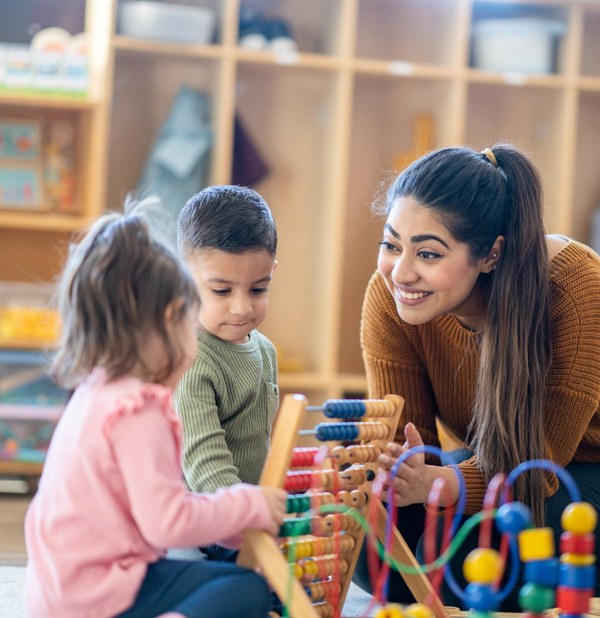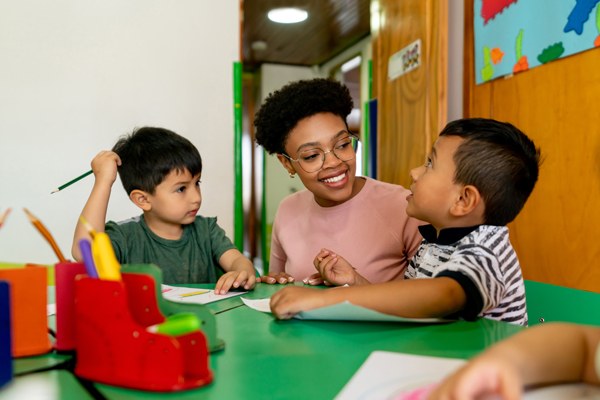Posted: March 8, 2023
"Relationships that are reciprocal, attuned, culturally responsive, and trustful are a positive developmental force in the lives of children" (Learning Policy Institute & Turnaround for Children, 2021, p. 2).

When children are nurtured in a caring, responsive, inclusive, and safe environment, they are better able to learn and grow. A positive classroom environment includes these important features grounded in supportive adult/child relationships. Sensitive and responsive teacher/child relationships are foundational to a positive classroom where children feel secure and can play, joyfully learn, and grow.
Build classroom community through relationships
Relationships are at the heart of a positive classroom. Relationship skills include the ability to build and grow healthy relationships, listen, communicate effectively, and work with others. Sensitive and responsive teacher/child relationships are critical for building a safe, secure, and emotionally responsive environment for young children. Sensitive and responsive caregivers acknowledge children's individuality and respond to children in a way that matches their needs. They offer children positive support throughout the day and give them multiple opportunities to learn and explore in a predictable, engaging, and stimulating classroom environment. Children who experience nurturing and responsive relationships with adults grow more confident in their abilities to engage in their environment and are often more excited to learn.
Caring and equitable practices pave the way

Adult/child relationships grounded in caring practices help children feel secure in their daily activities, build confidence, and feel they belong to the classroom community. Adults' positive model of caring practices helps children learn caring and kind behaviors. These positive models support children's ability to grow caring relationships with others in their world. When children feel safe, accepted, respected, and supported, they develop a healthy sense of self.
Ten tips for success: Caring and equitable practices that support relationships in the classroom
- Provide a safe, secure, and welcoming environment for all children.
- Interact with children with warmth, calm, patience, and kindness throughout the day.
- Notice, acknowledge, respond to, and talk with children about their feelings throughout the day.
- Embrace relationships with families to learn about each family's culture, language, funds of knowledge, values, and identity and how these areas can impact and strengthen your relationship with children.
- Respond to children's needs with meaningful and inclusive practices that support each child.
- Provide equitable support to all children--support that is given at the right time and in the right amount for each child.
- Value and elevate the strengths that each child brings to the classroom community.
- Recognize, learn about, and encourage children's individual interests.
- Have conversations with children about things that are important to them.
- Support and foster children's relationships with peers by pointing out commonalities and offering a variety of activities and ways for children to engage with one another.
Reference:
Learning Policy Institute and Turnaround for Children. (2021). Design principles for schools: Putting the science of learning and development into action.

